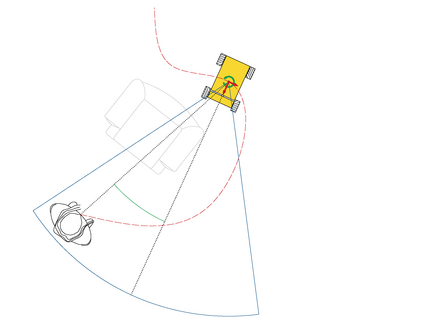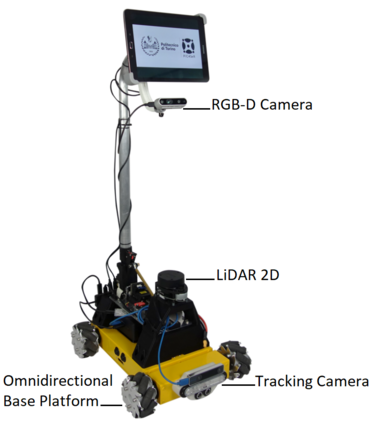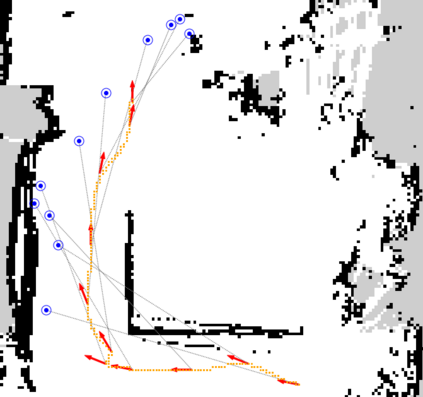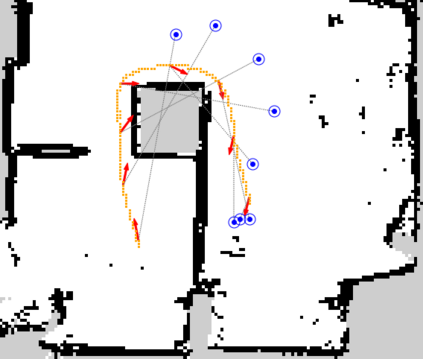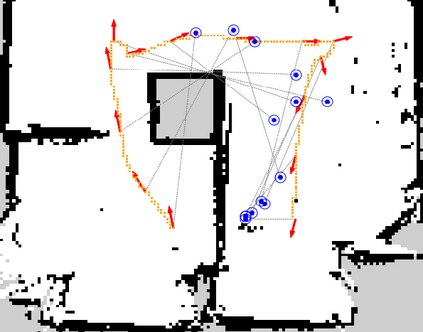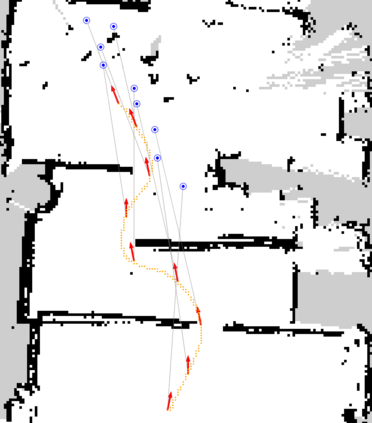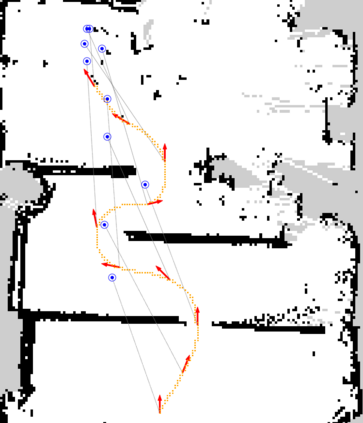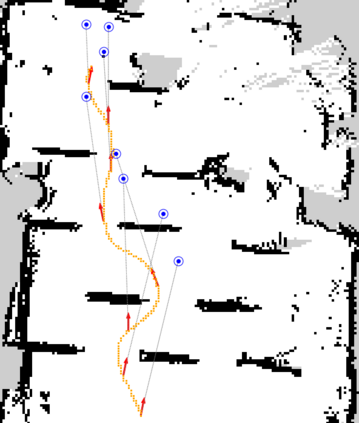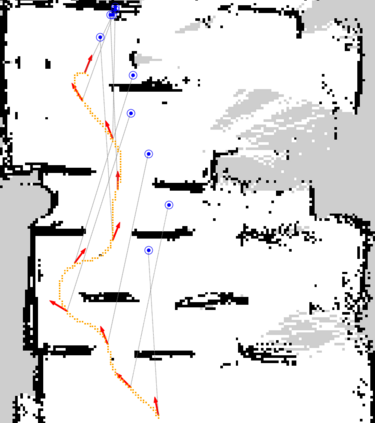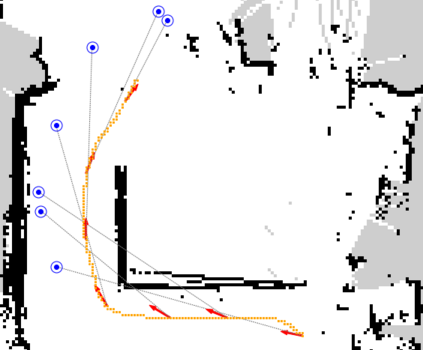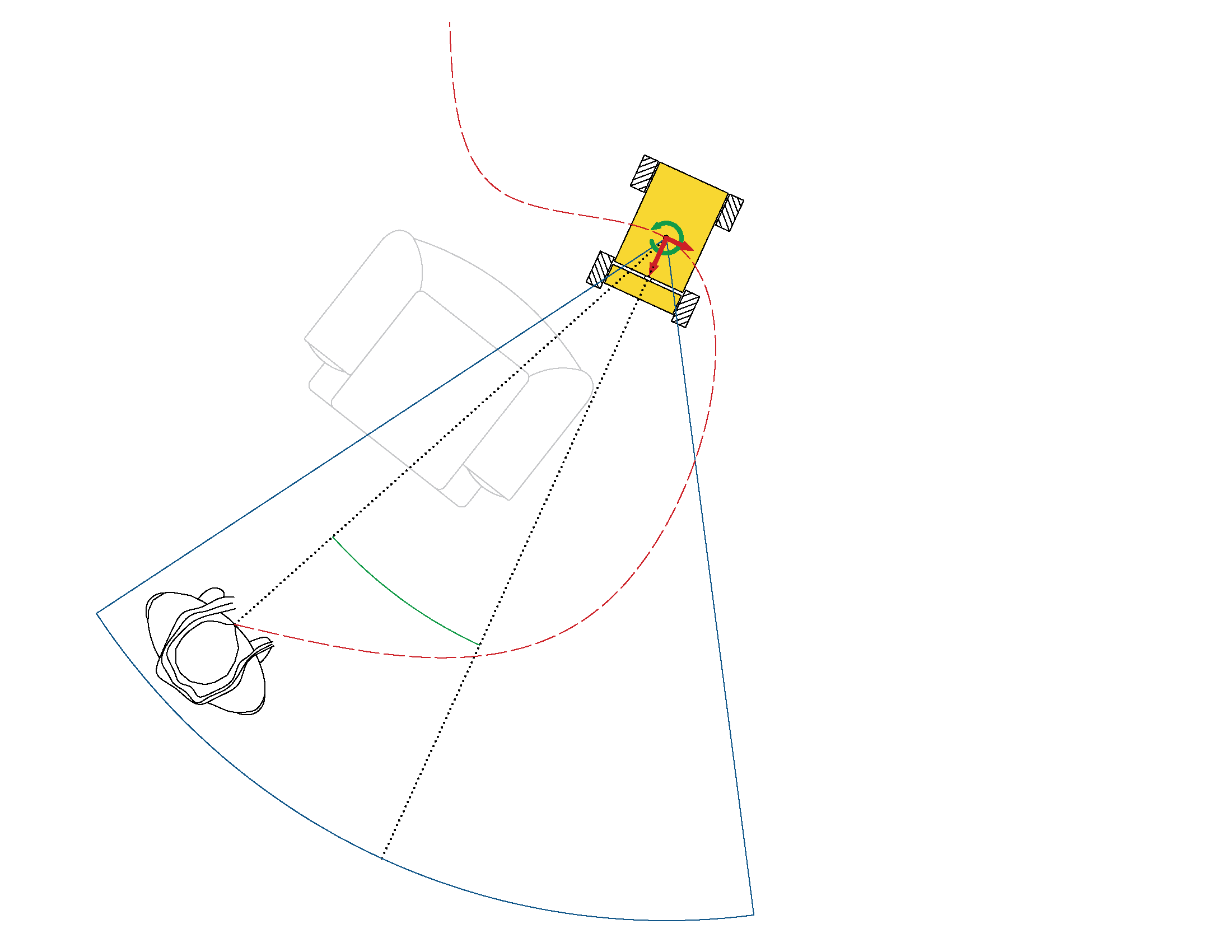Robot assistants are emerging as high-tech solutions to support people in everyday life. Following and assisting the user in the domestic environment requires flexible mobility to safely move in cluttered spaces. We introduce a new approach to person following for assistance and monitoring. Our methodology exploits an omnidirectional robotic platform to detach the computation of linear and angular velocities and navigate within the domestic environment without losing track of the assisted person. While linear velocities are managed by a conventional Dynamic Window Approach (DWA) local planner, we trained a Deep Reinforcement Learning (DRL) agent to predict optimized angular velocities commands and maintain the orientation of the robot towards the user. We evaluate our navigation system on a real omnidirectional platform in various indoor scenarios, demonstrating the competitive advantage of our solution compared to a standard differential steering following.
翻译:机器人助理正在成为支持人们日常生活的高科技解决方案。 在家环境中跟踪和帮助用户需要灵活的机动性,以便安全地移动于封闭的空间。 我们引入了一种新的个人辅助和监测方法。 我们的方法利用一个全向机器人平台,分解线形和角形速度的计算和在国内环境中的导航,而不会失去受援助者的轨道。 虽然线形速度由传统动态窗口方法(DWA)当地规划员管理,但我们培训了一个深强化学习(DRL)代理,以预测优化角形速度指令,并保持机器人对用户的定向。 我们评估了我们的导航系统在各种室内情景中的真实的全向平台上,展示了我们解决方案与标准差异方向相比的竞争优势。

